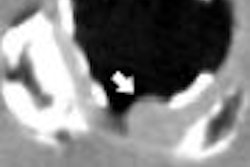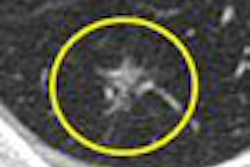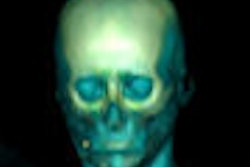Dear AuntMinnie Member,
Researchers from Massachusetts General Hospital (MGH) in Boston have developed computer-aided detection (CAD) software for virtual colonoscopy (VC) studies that works well regardless of the type of patient preparation used.
That's according to a new article we're featuring this week in our Virtual Colonoscopy Digital Community by staff writer Eric Barnes. In the study, MGH researchers showed how their CAD algorithm performed successfully regardless of whether patients underwent bowel cleansing or only fecal tagging prior to the VC exam.
It's an important issue because most current CAD software assumes that the patient's colon has been cleansed thoroughly before scanning -- a cumbersome process that can cause some individuals to forego screening altogether. While conventional colonoscopy requires cleansing in all cases, prepless VC CAD could help radiologists examine some individuals without the added burden.
Learn more about the software by clicking here, or visit our Virtual Colonoscopy Digital Community at vc.auntminnie.com.
Cutting neuro CT dose
Concerns have been rising over the level of radiation dose being delivered to patients during CT studies, and in response, researchers and vendors have been searching for creative solutions to cutting dose.
In our CT Digital Community this week, we cover the work of researchers from the University of California, San Francisco (UCSF), who used tube-current modulation to significantly cut radiation dose for brain CT studies.
They were able to slash radiation dose by as much as 60% for some types of studies, without affecting the quality of images. Find out how they did it by clicking here, or visit the CT Digital Community at ct.auntminnie.com.




















